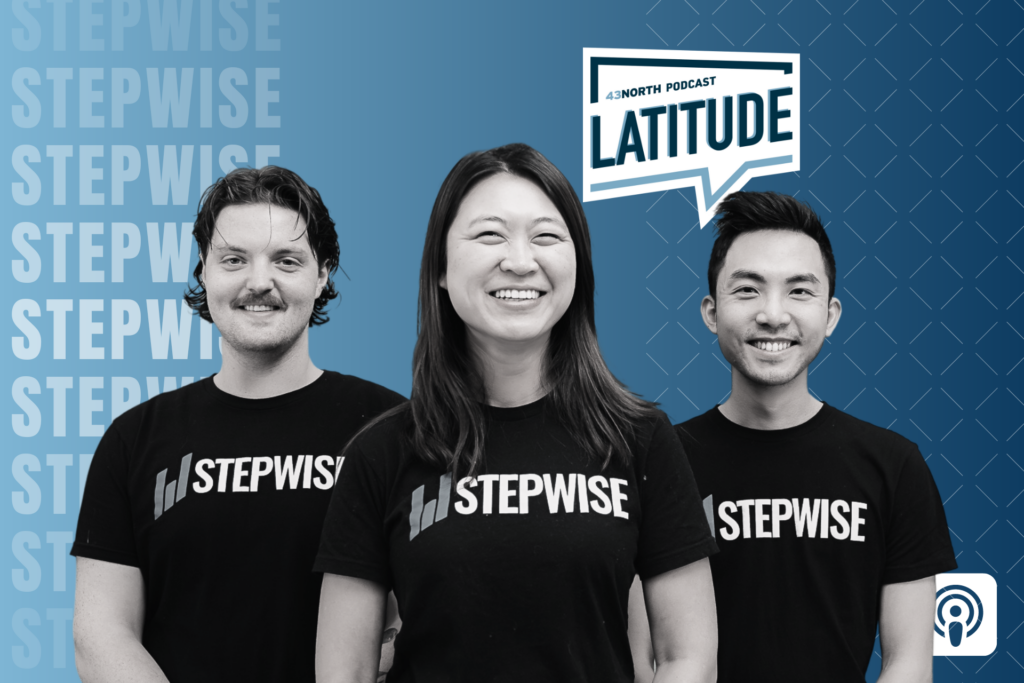Re-post from Buffalo Business First
Six years ago, an article titled “Start-up fever” appeared in the pages of Buffalo Business First.
The story detailed how a grassroots entrepreneurial community in Buffalo was being supported by a flurry of civic activity, from potential investors to economic development types.
The idea wasn’t that startups in Buffalo were a slam dunk. It was more that they were an idea worth exploring, a possible growth node in a region where economic vitality had become historical folklore.
There is still room for doubt. But there is no disputing that Buffalo’s startup community is cementing itself as an economic force that is here to stay.
“The phones are ringing here more than ever and people are asking, ‘What is going on?’” said Jack Greco, who co-founded ACV Auctions and now is executive director of the Techstars community-building initiative in Buffalo.
“I have venture capitalists saying, ‘Hey, we are thinking about spending a day in Buffalo. Can you make some intros?’ ”
For the third year in a row, at least 20 local startups have attracted growth-oriented financing from private sources. In 2019, the cumulative amount of money raised has already eclipsed $220 million, enabling companies to hire engineers, customer service reps, sales personnel and business executives.
The money flows in from all over the country.
- Wellington Management Co. of Boston led ACV’s $150 million Series E round of venture capital.
- Billionaire entrepreneur B. Thomas Golisano, who splits time between Rochester and Florida, pumped $20 million into PostProcess Technologies.
- Silicon Valley firm Trinity Ventures led Squire Technologies’ $8 million round.
- St. Louis-based Cultivation Capital led Kangarootime’s $3.5 million round.
Five years ago, would you have believed so many startups were pulling in money from outside the region?
That intersection of grassroots entrepreneurship and civic attention from 2013 has built a pipeline of local entrepreneurs, from recent college grads to frustrated banking bureaucrats to experienced subject matter experts.
In the meantime, glitzy coastal entrepreneurship hubs are now painfully expensive, especially for real estate and talent. In the meantime, more local pots of money exist to support the development of innovative ideas in Buffalo.
“Capital has begun to get out of its bank vault slumber, stretch its limbs and say, ‘I’m ready to have some risk tolerance.’ You’re getting people who would have only been talking about real estate five years ago,” Greco said. “And they’re saying, ‘Maybe I’ll make a couple startup bets.’”
This small but growing engine of activity has been supported by community-building programs, most notably the state-funded 43North business competition and incubator, which have served as forceful marketing agents.
43North was conceived in the Western New York Regional Economic Development Council and became part of New York State’s Buffalo Billion program, debuting its first competition in 2014.
Each year, the competition awards eight companies with a share of $5 million of investment-style prizes, with the caveat that they must operate from Buffalo for a year.
Some of those companies imploded or left Buffalo, but many stayed. Seven local companies that raised money this year went through the competition.
“Startups in Buffalo are benefiting from the quality and availability of a skilled and talented labor pool,” said Alex Gress, 43North president. “Their operating costs from a real estate and administrative perspective are lower, which extends their runway and helps them through downturns in their business. It makes them strong candidates for growth-level financing.”
Gress said 43North pivoted three years ago to focus on more mature startups that articulated a compelling reason to relocate to Buffalo.
The nonprofit, which is scheduled to move staff and most of its portfolio companies into Seneca One Tower in early 2020, also started focusing on a tangible system of support services. They range from recruiting to customer acquisition.
“We want them to continue to be based in Buffalo, to grow here and to help build a sustainable entrepreneurial ecosystem,” Gress said. “And then what happens? A company gets sold or goes public, and the founders come back and become investors or supporters of future startups.”
One of those companies is SomaDetect, led by founder and CEO Bethany Deshpande. The startup, which is building a system that measures the milk output of individual cows, came here about two years ago after winning the grand prize in the 43North business competition.
Now 20 employees are roughly split in Canada and Buffalo.
Earlier this year, SomaDetect closed on a $2 million seed round backed by the New Brunswick Innovation Foundation, the Western New York Impact Investment Fund and New York Ventures, a fund administered through Empire State Development.
“We have learned a ton since we came to Buffalo and we’re working toward some major announcements,” Deshpande said.
CleanFiber also came to Buffalo two years ago after winning a 43North prize. The company now has a 60,000-square-foot factory in Lackawanna where 27 employees turn recycled cardboard into building insulation.
CleanFiber announced in October that it had closed on $5 million in funding from Connecticut-based IFG Asset Management. That company had previously supported its growth from Buffalo-based investors.
“We are hiring and looking to scale up our production operations,” said Jonathan Strimling, CleanFiber CEO. “That is our plan through 2019 and beyond.”
Then there is ACV Auctions. The online dealer-to-dealer automotive marketplace has more than 1,000 employees, and more than 400 of them work from Buffalo headquarters.
ACV finally confirmed what was previously theoretical in Buffalo. It turned co-founders Greco, Dan Magnuszewski and Joseph Neiman and CEO George Chamoun into stars of the business community. The company promises a major return to initial local investors – many of whom wrote checks to help ACV raise its first million dollars – once it is acquired or hits the public markets.
One investment firm that backed ACV Auctions is Armory Square Ventures, which focuses on startups in Central and Western New York.
Somak Chattopadhyay, Armory Square founder and managing partner, said the company sees good ideas in a region where money goes much further than in New York City or Boston.
In fact, he said one of the issues is encouraging promising entrepreneurs to be less modest about how much cash they’ll need to become disruptive market leaders like ACV.
Perhaps it’s time for local entrepreneurs to start thinking bigger.
“What we are seeing is that local startups can do something with a few million dollars that would take $10 million to $15 million in a bigger city,” Chattopadhyay said. “It’s a double-edged sword because founders aren’t as worried about burning money, and sometimes they don’t see how quickly things are changing in their market.”
Chattopadhyay, who lives in Skaneateles, was a partner at Manhattan-based Tribeca Venture Partners before founding Armory Square in 2014. His firm started with a $20 million fund and recently raised a $31 million second fund.
He said the quantity and quality of deal flow has exceeded his expectations since he started the firm five years ago. Now he would like to see more firms such as Armor Square, which is not only capable of writing a $1 million check to lead a Series A round but also takes an active role in connecting portfolio companies to high-value potential executives and customers.
“The talent is blossoming here in a big way, and there are more companies and more competition,” Chattopadhyay said. “We’ve already looked at companies with people who were part of ACV, who want to take the experience of their prior roles and build a company.”
Perhaps nowhere is the evolution of Buffalo’s startup community more obvious than to people who have been watching it for years.
In the early 1980s, Charles Lannon co-founded Williamsville-based Life Storage, which is now one of the biggest self-storage conglomerates in the United States.
He organized the group of investors that provided early financial support to Buffalo-based Athenex, which went public in 2017 and is now valued at more than $1 billion on public markets.
He swung that network’s attention last year to PostProcess, an additive manufacturing startup, and now focuses on Circuit Clinical, a Buffalo biotech startup founded by cardiologist Irfan Khan.
Circuit Clinical won a $500,000 prize in the most recent 43North competition.
Lannon has long said that his startup investment thesis emphasizes charismatic, smart founders – “the jockeys,” in his favored horse race analogy.
“Everything goes through a maturation process – people do, businesses do, opportunities do,” he said. “What you’re seeing now is there are many more good jockeys than there were in the past. They have more believable business models, more realistic projections and a better understanding of what it means to raise money.”
Lannon continued: “I think we are beginning to see a fundamental shift in the mindset of not just focusing on that initial investment, but in understanding what they’ll need as their companies scale.”
This isn’t just about outside money, big venture capital firms and government support. Buffalo’s startup resurgence has been supported by the Western New York Impact Investment Fund, which backs a handful of startups a year, and Launch NY, which has several investment vehicles aimed at helping early-stage entrepreneurs get ready for bigger deals.
The University at Buffalo is now investing out of a state-backed fund aimed at local health sciences startups.
“We blew away our forecasts in terms of what we’ll close by the end of the year,” Launch NY CEO Marnie LaVigne said. “We are seeing more people come off the sidelines, and we’re starting to see the community build up its capability to help companies gain traction and form important business ties. At the same time, the flurry of activity can only be sustained when we start to see more exits, more successes that will keep the flow going of a self-sustaining ecosystem.”



